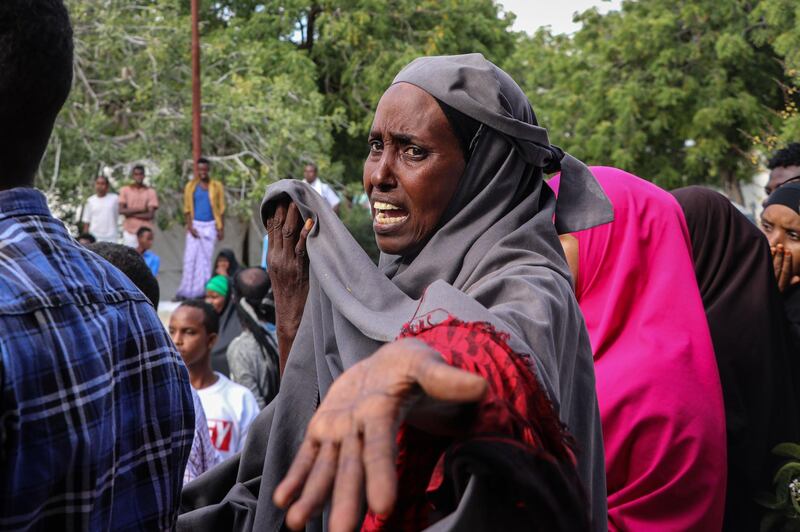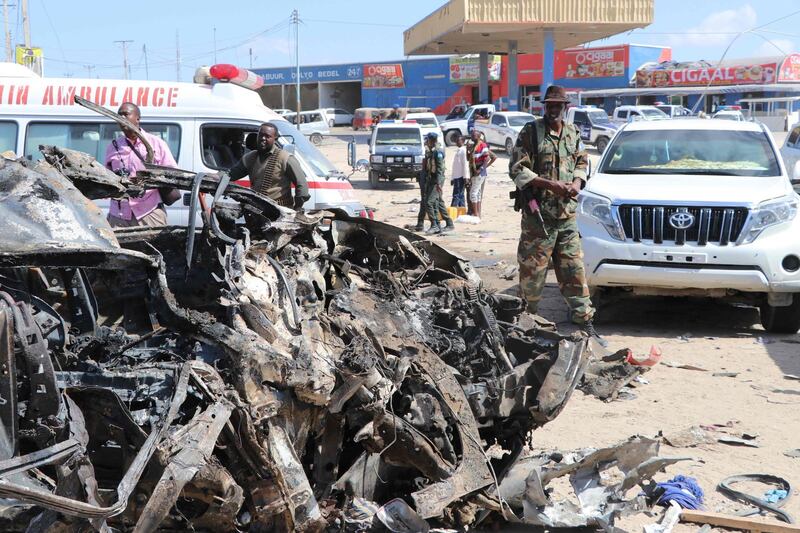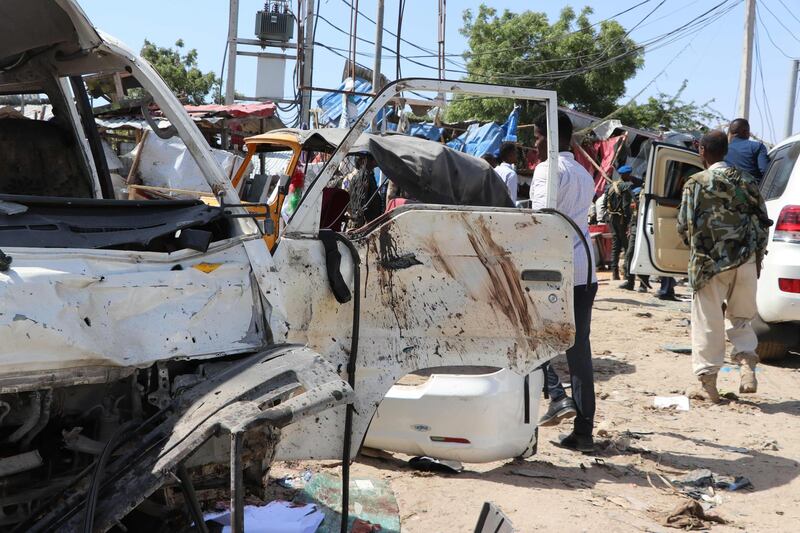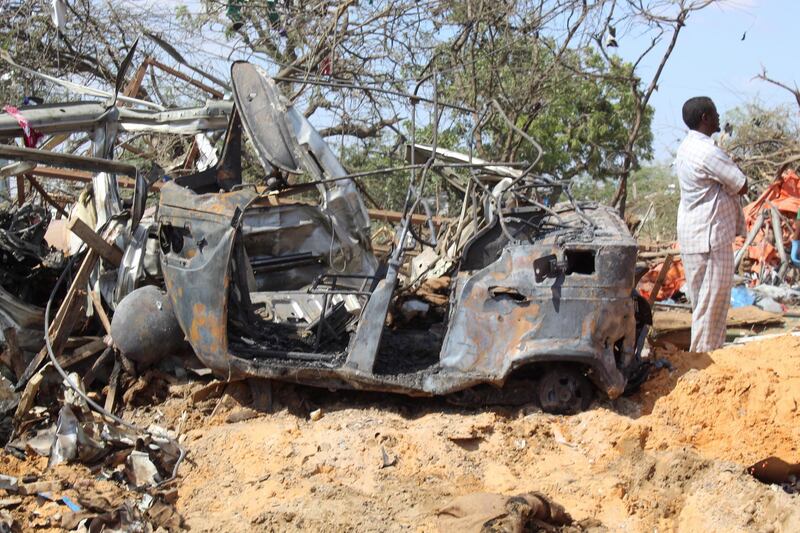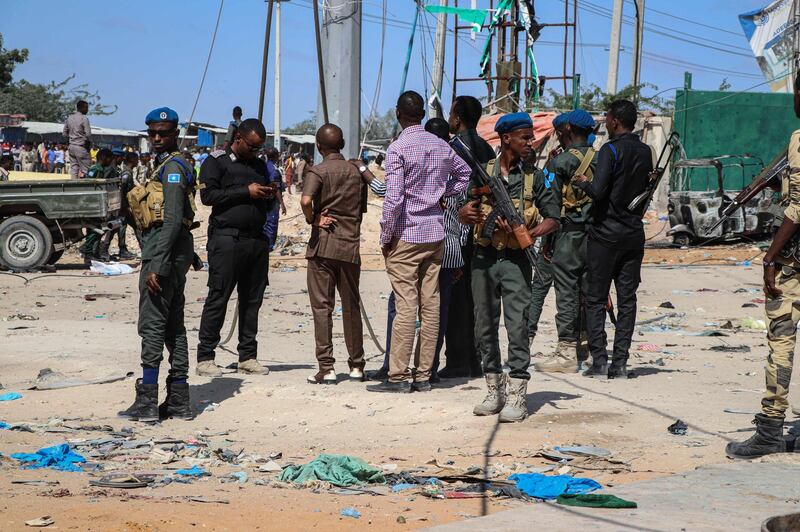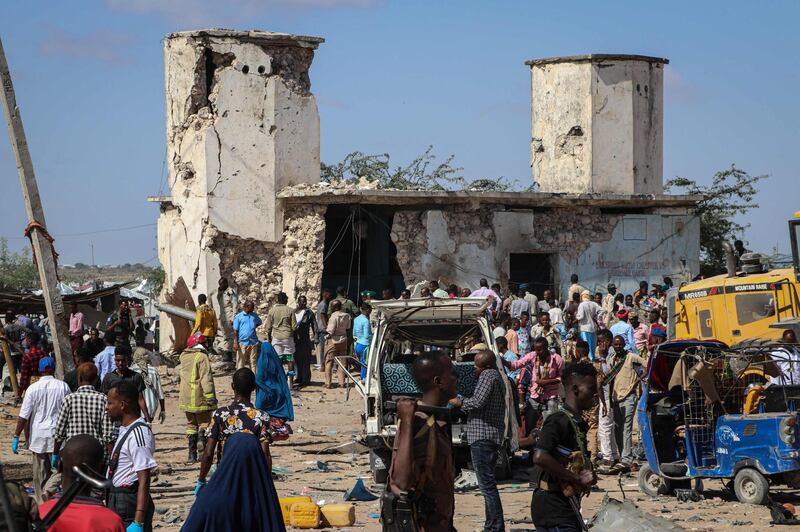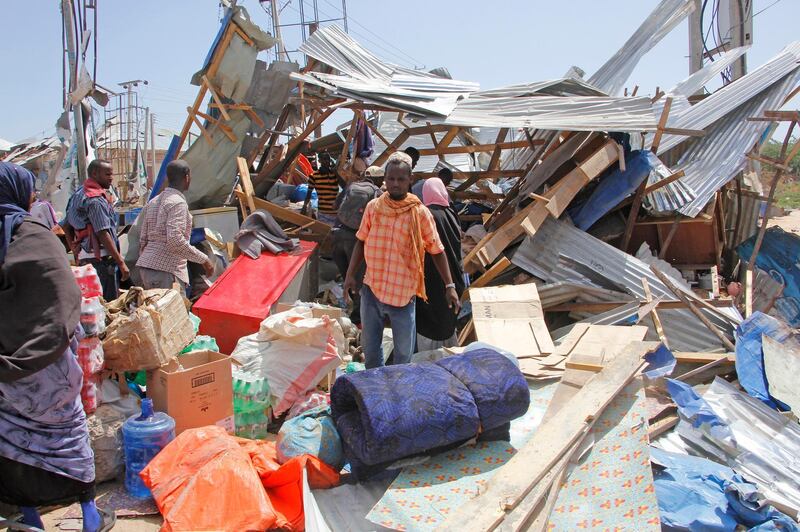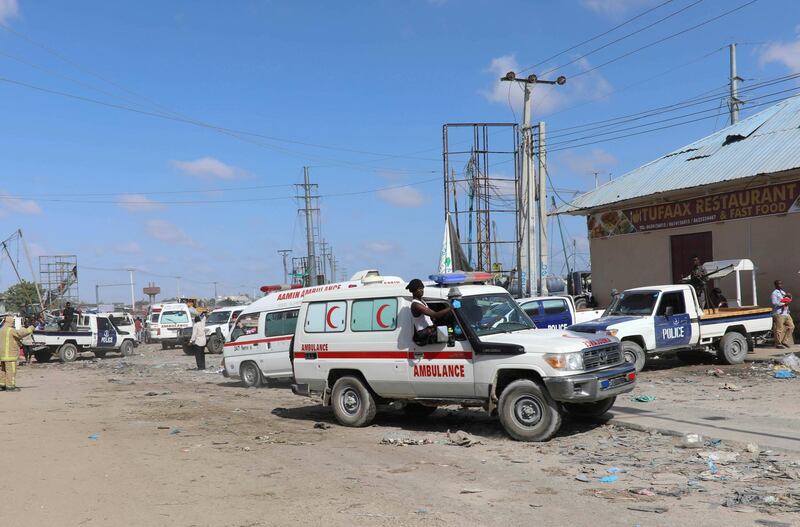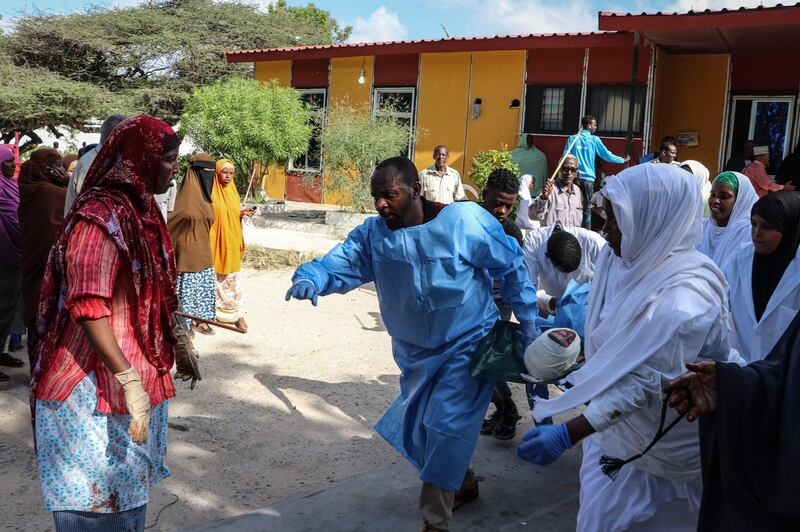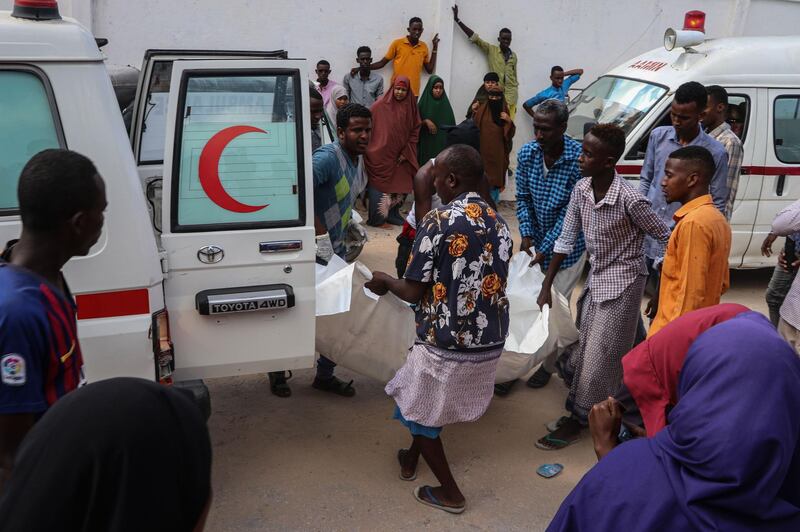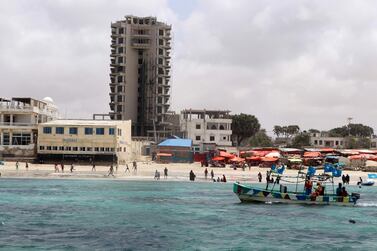A massive car bomb exploded in a busy area of Mogadishu on Saturday, leaving at least 79 people dead, many of them university students, officials said.
The blast occurred in a busy area of the city where traffic is heavy because of a security checkpoint and a tax office.
Rescuers carried dead bodies past the twisted wreckage of a vehicle and minibus taxis smeared with blood.
Mogadishu is regularly hit by car bombings and attacks waged by Al Shabab Islamist militants allied to Al Qaeda.
It was one of the deadliest attacks in Mogadishu in recent memory.
Many of those killed in the rush-hour blast are believed to be university students whose bus was hit. Two Turkish nationals also died, police said.
"The number of casualties we have confirmed is 76 dead and 70 wounded, it could still be higher," the director of the private Aamin Ambulance service, Abdukadir Abdirahman Haji, said.
Captain Mohamed Hussein said the blast targeted a tax collection centre during the morning rush hour as Somalia returned to work after its weekend.
Children were among the wounded. Also among them were several university students who had been travelling in a bus, Hussein said. Photos from the scene showed the mangled frames of vehicles.
A large black plume of smoke rose above the capital.
Speaking to reporters at the blast site, Mogadishu Mayor Omar Muhamoud said students were killed as they commuted to their studies, many of them to the capital's Banadir University.
Prime Minister Hassan Ali Khiere appointed an emergency committee to work on providing help to those who have been wounded in the blast.
"We will seek medical assistance outside the country for those whose health situation cannot be dealt with inside the country. We are calling on the Somali public both, inside and outside the country to take part in assisting the victims, and to stand together in the fight against Al Shabaab", the prime minister told Radio Mogadishu.
There was no immediate claim of responsibility for the blast. But Al Shabab was pushed out of Mogadishu several years ago and continues to target high-profile areas such as checkpoints and hotels in the seaside city.
The most deadly attack blamed on the group was in October 2017 when a bomb-laden truck exploded next to a fuel tanker in Mogadishu, creating a storm of fire that killed nearly 600 people.
While Al Shabab carries out frequent attacks, the death tolls are often lower than in Saturday's blast. The group has sometimes not claimed responsibility for attacks that sparked a big public backlash, such as a 2009 suicide bombing of a graduation ceremony for medical students.
Seemingly referencing Al Shabab, Somalia's President Mohamed Farmaajo said those who plot and carry out these attacks have "never brought a single development to our country, no roads, no hospitals, no educational institutions," Somali news agency SONNA reported.
"Their work is destructive and genocidal," he added.
After the sound of a huge blast at the Ex-Control checkpoint, 55-year-old Sabdow Ali, who lives nearby, said he left his house and counted at least 13 people dead.
"Dozens of injured people were screaming for help but the police immediately opened fire and I rushed back to my house," he said.
The injured were transported to Medina Hospital, where a witness saw dozens arriving by ambulance from the scene.
A nurse at Medina, speaking on condition of anonymity, said the facility had received more than 100 wounded people. Weeping relatives gathered outside the entrance as they sought information on their loved ones.
The attack again raises concern about the readiness of Somali forces to take over responsibility for the Horn of Africa country's security in the coming months from an African Union force.
The AU peacekeeping force, in Somalia since 2007, has been gradually withdrawing its forces over the past several years. Somali forces are scheduled to assume responsibility for security next year, though the precise date of the withdrawal has repeatedly shifted.
"Somalia is not ready to take over control of security next year or the year after," said Hussein Sheikh-Ali, a former national security adviser and founder of the Hiraal Institute, a Mogadishu-based security think-tank.
Saturday's attack was the 20th vehicle-borne explosives attack of 2019 and the year is ending with more deaths from such attacks than 2018, he said.
Al Shabab, the target of a growing number of US airstrikes since President Donald Trump took office, controls parts of Somalia's southern and central regions. It funds itself with a "taxation" system that experts describe as extortion of businesses and travellers that brings in millions of dollars a year.
The international community condemned the attack, sharing condolences for lives lost.
"By what delusion do the terrorists think God wills this and not love?" wrote British ambassador to Somalia Ben Fender.
"In what contempt do they hold their fellow citizens? Our hearts go out all the victims and their loved ones."
